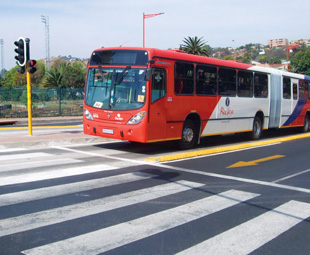The year of the “Transpooks”?

VAUGHAN MOSTERT conjures up a clumsy word to describe the forces behind local public transport: “transpook”
“Transpooks” are organisations and individuals with two things in common – they are involved with public passenger transport in some way or other, and not one of them is doing anything of real consequence to solve the many problems we face.
They include: the Department of Transport (DoT) (ten of them at central and provincial level), public enterprises, the Treasury, city councils, the subsidised bus and rail operators, several research bodies at government and university level, various non-government organisations (NGOs), some accounting firms, consultants and all the political parties.
While they “spook” around, the construction people pour scarce money and concrete into phoney transport infrastructure projects. Two articles, both taken from Business Day of November 17, 2016, illustrate this point.
The first one was headed: Report reveals Gauteng taxi permit woes. A provincial committee found “wide-ranging administrative, regulatory and managerial failures around the issuing of taxi permits”.
It noted “worrying relationships between some associations and officials that resulted in cosy arrangements around private security and hitmen, together with poor record-keeping on agreements over routes”.
Responding to this, the Gauteng government (which pumps nearly R2 billion a year into the Gautrain) said it “would consider … the establishment of a dispute-resolution mechanism”.
Commenting on the report, transport analyst Paul Browning said: “There are elements of corruption, maladministration and uncertainty about how the criteria should be applied.”
The second one was a lengthy contribution from the Centre for Development and Enterprise (CDE), which, from time to time, gets a lot of space in Business Day. Dealing with the need for “integrated urban economies”, the article touches on some transport-related issues, making good points, but also wobbling in some areas.
Here’s an example: “Current policy also benefits and protects incumbent service providers rather than creating competitive pressures that would make transport more efficient, cheaper and safer.” The first part is correct, but the second part is nonsense.
It is precisely these competitive pressures that have led to the taxi problems mentioned in the first article. To make it worse, we have known about this for a long time.
Let’s go back 24 years to The Star of February 10, 1993, when the same Paul Browning accurately summed up the situation at that time: “The (taxi) industry is overtraded – there are too many taxis chasing a commuter population, which is shrinking. Free marketeers might argue that this will lead to a market correction. This may well be so, but the process will create a fertile field for instability and violence.”
I am sure that Browning is as annoyed as I am at the lack of progress at government level, as well as the unhelpful advice still being given by transport economists, consultants and think tanks.
The CDE then comes up with more nonsense: “A reorientation of policy to subsidise commuters rather than service providers should be explored urgently”. Try telling that to the people who run the Gautrain, the Passenger Rail Agency of South Africa (Prasa) and bus rapid transit (BRT).
The CDE should rather have said: “All commuters should be subsidised on an equitable basis.” Of course, that won’t happen overnight – at our glacial rate of progress it will take another 24 years to achieve.
Recent research at both the University of Johannesburg and the University of Cape Town has found that the average cost of transport and other costs related to seeking work for unemployed youth is R560 per month, while the average income for the same group of youth is R527 a month. There is not much point in having a job then. Let’s hear some ideas from the “transpooks” on this one. Here’s a flippant idea – let’s extend the Gautrain by five kilometres…
The CDE is also too polite when it says: “No one involved in the transport sector believes enough has been done to develop workable solutions.” That’s true, but it lets public transport operators off the hook.
I’d rather read: “No one in transport has done enough to develop workable solutions.”
The CDE continues: “Long-term transport solutions require the spatial reordering of South African cities.” That may be desirable, but in the short term it will be easier and cheaper to fix public transport than to reorganise cities.
The CDE correctly acknowledges that the Gautrain, BRT and renewing Prasa rolling stock have failed to meet their cost and revenue projections. However, it should have added: “No more money should be spent on new construction until existing services have been optimised.”
During the past 17 years we have frequently been told that Gautrain is the “example” that
other forms of public transport should follow, and that it would be the “catalyst” for various improvements.
Well, we wonder where these improvements are, but hey, “transpooks” don’t let questions like that bother them.
Vaughan Mostert lectured on public transport issues at the University of Johannesburg for nearly thirty years. Through Hopping Off, Mostert leaves readers with some parting food for thought as he continues his push for change in the local public transport industry.
Published by
Focus on Transport
focusmagsa




